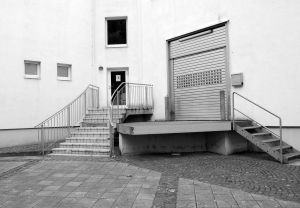Vista 7 Top 'Feature' is Access to Intruders
- Dr. Roy Schestowitz
- 2011-05-13 01:00:14 UTC
- Modified: 2011-05-13 01:00:14 UTC

Summary: Microsoft's back door-friendly operating system receives praise from the secret agencies but a bad report card regarding actual security
THE ANTIFEATURES are totally free of charge and they come with all editions of the operating system which the NSA is recommending for peculiar reasons. Yes, Vista 7 is not secure as we showed in older posts such as:
- Cybercrime Rises and Vista 7 is Already Open to Hijackers
- Vista 7: Broken Apart Before Arrival
- Department of Homeland Security 'Poisoned' by Microsoft; Vista 7 is Open to Hijackers Again
- Vista 7 Security “Cannot be Fixed. It's a Design Problem.”
- Why Vista 7 Could be the Least Secure Operating System Ever
- Journalists Suggest Banning Windows, Maybe Suing Microsoft Over DDoS Attacks
- Vista 7 Vulnerable to Latest “Critical” Flaws
- Vista 7 Seemingly Affected by Several More “Critical” Flaws This Month
- Reason #1 to Avoid Vista 7: Insecurity
- Vista 7 Left Hijackable Again (Almost a Monthly Recurrence)
- Trend Micro: Vista 7 Less Secure Than Vista
- Vista 7 Less Secure Than Predecessors? Remote BSoD Now Possible!
- Vista 7 Unacceptable for Large Businesses and Windows XP Still Not Secure
A Windows site says that
"Windows 7's malware infection rate climbs, XP's falls" (many thanks to Will for the link). To quote:
Microsoft released data today showcasing that Windows 7's malware infection rate has climbed by more than 30% during the second half of 2010, while the infection rate for Windows XP has dropped by more than 20%.
As ComputerWorld reports, during the second half of 2010, the data shows that 32bit Windows 7 computers were infected at an average rate of 4 PCs per 1,000, compared to 3 PCs per 1,000 that took place during the first half of 2010. This is a 33% increase in the infection rate. Those running Windows 7 64bit had better chances of avoiding problems with an infection rate of 2.5 PCs per 1,000.
Most secure operating system? Tell that to the NSA, which actually has reasons to treat insecurity as a good thing. The government's own security depends on its ability to keep on eye on the citizens' computers and
we know that such power is being misused.
Katherine Noyes has
this good new article on the subject. It quotes Mr. Robert in places:
"NSA recommending Vista for home security is merely a reflection of the reality of monopoly in the retail space," blogger Robert Pogson offered. "In the USA probably as few as 2 to 3 percent of users use GNU/Linux, so a recommendation is almost useless."
Those who are serious about security "are already aware of SELinux, a product of the NSA," Pogson added. "The NSA is merely recommending that folks move on from XP, a poor OS poorly supported by M$. Folks who would heed that advice probably do not even know GNU/Linux exists."
Recommending something whose workings are a secret is always a bad idea. Nobody can tell what's actually in it.
The bottom line is, Vista 7 is not secure, but the "security" in national security means almost the opposite of what people assume it to mean. National security is about intruding people's lives, i.e. breaching security, not blostering it. Whatever the NSA says, consider doing the opposite if you care about freedom.
⬆
"Government relations is a test of how you manage frustration" ~Anonymous
